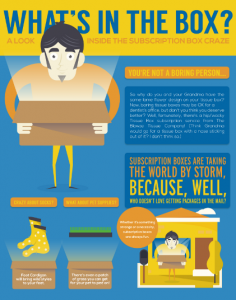I hit the button.
Linda was a social media friend, not a close one, and I stumbled on a post of hers. Linda can’t really believe this, I thought to myself (I’m giving you the cleaned-up version of my thoughts here). The more I read, the more I felt rage boiling up inside of me. It was coursing through my veins. It was hot red.
Triggered. There was not a heck of a lot of thought involved.
I hit the button and unfriended her.
It felt really good to hit the button. In our professional lives, however, you and I get triggered by people and situations, and hitting the button ISN’T an option. Managing our emotional triggers is. A little distinction, first.
There’s having a reaction. There’s being triggered.
When you and I disagree on a matter, I will likely have an emotional reaction. Based on my values, my point of view, based on my narrative about you and my circumstances that particular day. An emotion may kick in.
Being triggered is a whole other stratosphere of reaction. It is an emotional reaction on steroids. The emotion is outsized. Eruptive and enraged. Coupled with obsessive thoughts that we seem incapable of letting go.
“Everything that irritates us about others can lead us to an understanding of ourselves. “
Carl Gustav Jung
The Gift of the Triggered Response
Really – there IS a gift. The severity of our triggered response often points to our own personal shadow. That is the dark side we try to hide. The side of ourselves that we may not actually be conscious of. The side that consistently gets us into trouble because we like to think it simply isn’t there.
Because we’re more perfect than others. Morally superior to them. Not pretty.
This is what triggered looks like at work: We vilify a certain colleague. We rage in silence during a meeting we can’t stand. We complain incessantly behind the scenes about everything that’s wrong. We cut corners to beat the system.
Triggered.
Between stimulus and response there is a space, neurologist Viktor Frankl wrote in his classic “Man’s Search for Meaning.” In that space is our power to choose our response. In our response lies our growth and our freedom.
Here are 3 questions that will help you better manage your emotional triggers. These questions are your path to personal growth and more freedom.
Managing our Emotional Triggers
Ask Trigger Question #1: What am I feeling right now?
Sounds simple, right? Don’t we usually know what we’re feeling? Well, actually, most of the time we don’t. Especially when we’re triggered, we get so caught up in our obsessive response that we’re unaware of the intensity of our reaction. By naming what we feel – I am enraged, I am insulted, I am furious – we direct the attention away from the external trigger back to us.
Naming is the first step to better understanding the vehemence of our reaction. Without understanding, it is difficult to change our emotional response. And changing our emotional response always begins within.
Ask Trigger Question #2: What beliefs do I hold dearly?
The severity of my response to you is likely triggered by my perception that you are violating one or several of my core beliefs. People should be honest. Policies should be fair. A leader should be empathetic. A decision should be just. Everyone’s opinion should be valued. And so on and so on.
It’s critical to claim a core belief. I may not be conscious of all my core beliefs. When I claim my beliefs, it becomes easier for me to connect the dots between emotions that seem to run away with me and my core that ignites the severity of my response. It also begs the question: Does someone else have a different core belief? And as indignant as I may feel – what might their reason be for embracing such a different belief?
Ask Trigger Question #3: Has MY behavior ever not been aligned with my core beliefs?
When we ask this question honestly, the answer likely is often, a lot, on a daily basis. Be specific in your answer to this question. Answer it without beating yourself up. Notice your desire to, even here, want to cover up the dark side. Don’t.
Scrupulous honesty with ourselves has several powerful impacts: It lessens the severity of our triggered responses. It stops us from being holier than though. And it shows us at once where we can clarify our everyday behaviors.

Yes, between stimulus and response there is a space. Go ahead, have your emotions. Notice when you’re triggered. And instead of responding impulsively, walk into that space. Pause. Ask your 3 Trigger Questions. The answers to the questions will illuminate your personal shadow. They will soothe your emotions. They will clarify.
Notice. Pause. Ask your 3 questions. It’s how we begin to manage our emotional triggers.
Freedom will come.
Business & Finance Articles on Business 2 Community
(39)






